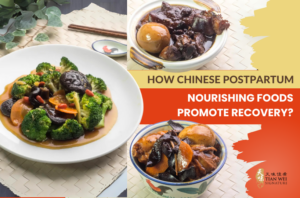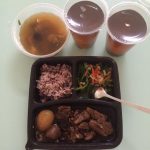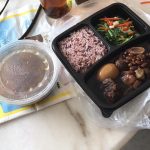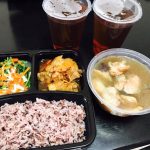81 Tagore Lane, TAG A, #01-11 Singapore 787502 ♦ Reservation : +65 6727 5599
Best Foods to Prevent & Relieve Constipation After Birth
You may expect your postnatal days to go many ways, but being constipated is not one of them. Unfortunately, post-birth constipation is very normal, so much so that it has its own term; postpartum constipation.
New moms will usually have a bowel movement within two to three days after giving birth, but the rate of postpartum moms who experience postpartum constipation is still considerably high (up to 30%).
While it is normal for your bowels to be sluggish due to the stretched muscles and perhaps as a result of using certain medications, constipation is different and can be extremely unpleasant to deal with. One of the best ways you could treat this constipation is by modifying your diet.
Why is it important to prevent constipation after giving birth?
First, you have a womb that is trying to heal. Even when you were not yet pregnant, you have probably been told not to lift heavy items so as to not hurt your womb. That advice does hold some truth to it, to some extent. When you experience constipation, your abdomen is putting more pressure on your weakened pelvic floor muscle (the muscle that is holding up your womb). So, if you have to push your body to induce a bowel movement, your womb is not going to be comfortable.
Next, you are also possibly dealing with some vaginal tears as a result of your delivery. Experiencing constipation could be extremely unpleasant to deal with, given the stinging you may feel. Nevertheless, any form of straining after giving birth is never encouraged for anyone.
What to eat to treat (and prevent) postpartum constipation?
Eat well! Sure, there are possibly some sort of exercises that you could incorporate into your daily life to boost your bowel movement, but at this time when you are required to rest more than you move, perhaps those exercises can be put off to later days. Therefore, do focus more on your postpartum confinement food. Below is a list of foods that can help relieve your constipation and why they work. Remember, just use this as a guideline and do not stockpile everything at once into your meals!
Fruit
Are we even surprised that fruit is the first on this list? We’ve been told to eat more fruits since we were kids, that has got to be for a reason! And the reason is — apart from giving your body the ‘good’ sugar – to induce bowel movement and thus promoting good gut health! Some of the best ones include plums, raisins, berries, and prunes. These are all high-fibre fruits. Make sure to eat the peels as well!
Whole Grains
Whole grains provide more fibre compared to the refined ones like white flour. You can have oats, brown rice, and barley in the morning. By doing this, you can see a significant improvement in your digestive system.
Vegetables & Nuts
Vegetables can help in many ways, but especially in promoting gut health. Of course, one of the best food to eat during confinement are nuts, such as almonds as they are high in fibre.
Seeds
Yes, it’s not just a vain trend with no purpose! You could sprinkle some seeds (like flax seeds and chia seed) onto your yoghurt or sandwich and it would do more to your gut health and overall health than you’d know.
Beans and Legumes
Not everyone loves beans, but those who do, you’re lucky! Most of them like lentils and soybeans are an excellent source of fibre!
Hot Tea
Fancy a cup of tea? Make it herbal! A warm cup of herbal tea does not only make you feel comfy and warm, but it can also improve your constipation.
How will fibre help when you have constipation?
If you haven’t noticed by now, fibre is pretty much everywhere in the listed foods above. Yes, fibre helps greatly with constipation – both in preventing and treating it. Hence, if you experience constipation, do increase more fibre in your daily meals. As you can see from the list above, the fibre-rich foods will not be something you are not familiar with! In fact, you possibly already have most of the items mentioned up there.
So, perhaps you should just ‘pile up all fibre-rich foods onto your plate’? No, do NOT do that. Having too much fibre, especially immediately after going through delivery, can be hard on your system and may add to symptoms of gas and bloating.
How to include more fibre foods into your meals?
The key is to start slowly. Start with fruits and vegetables that are light on your stomach and the ones that you are more familiar with. If you are indeed experiencing constipation, increase your fibre intake day by day, about 20 grams each day. So if you have already increased 20 grams of fibre today, tomorrow it’s another 20 grams. Furthermore, in Chinese postpartum diet, some dishes tend to be ‘heaty’ due to the usage of ginger, sesame oil, and sometimes alcohol. Hence for the best results, it’s important to stay hydrated on top of having plenty of fibre.
TLDR: Eat foods that are rich in fibre. Some of the best (and most common) ones are brown rice, beans, and fruit and vegetables. This should go without saying, but do remember to drink a lot of water! Keep the water warm if that’s what’s comfortable for your body. All in all, finding the right food to eat after delivery is not difficult! In fact, you can find many of these ingredients in the corner of your kitchen!







